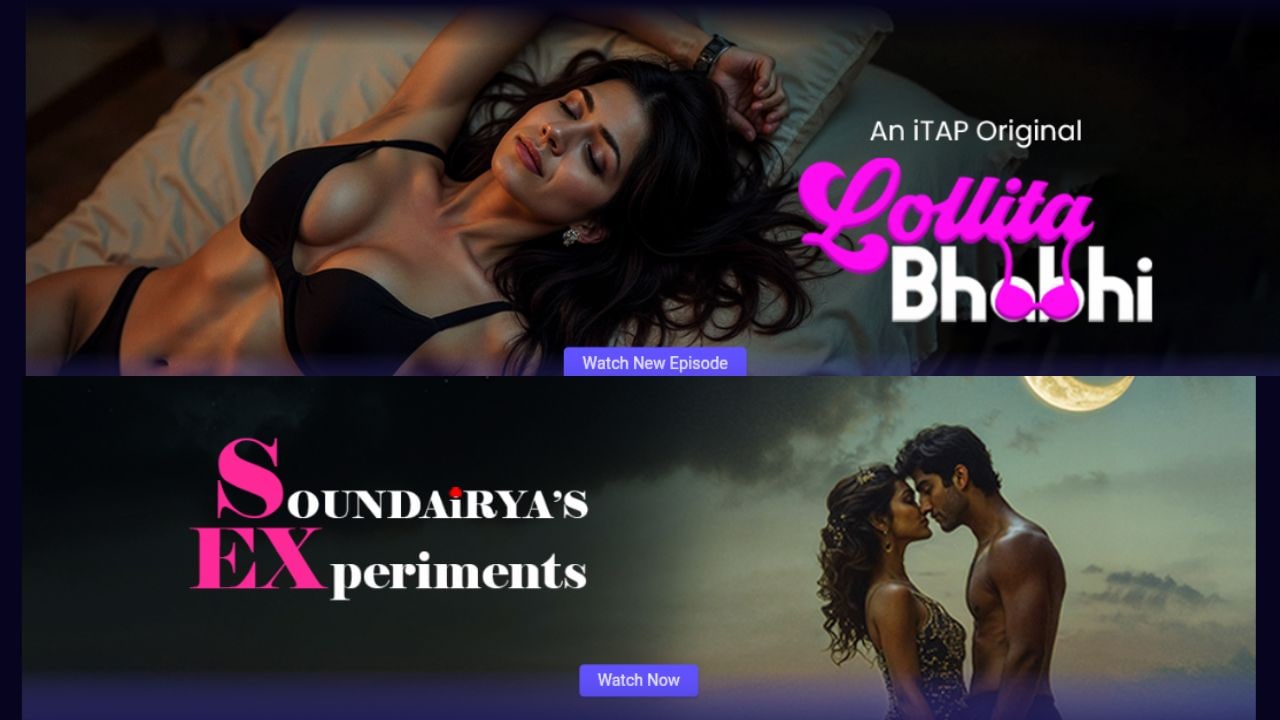As the Supreme Court of India raises serious alarms over obscene content on OTT platforms, a new and unsettling frontier has emerged: the use of generative AI to create soft porn content. This development is sparking outrage among industry leaders and cultural custodians, who are calling for immediate government intervention and even a complete ban.
Read more: SC raises concern over OTT content, Govt pushes for regulation
The Apex Court has issued notices to major players, including Alt Balaji, Ullu Digital, Mubi, Amazon Prime Video, and Netflix, as well as to tech giants like Google, Meta, and Apple. The move comes after a Public Interest Litigation (PIL) sought regulation of explicit material proliferating across streaming and social media platforms.
The PIL and subsequent court actions come amid rising public outrage over the type of content being pushed to digital audiences. Platforms like Alt Balaji and Ullu Digital have come under particular scrutiny for streaming titles such as Dulhaniya Beediwaali, Lust Party, Jungle Mai Dangal (on Alt Balaji), and Sarkaaye Lo Khatiya, Kundi Mat Khadkao Raja, and Painter Babu (on Ullu Digital) – content described as soft pornography under the guise of adult entertainment.
However, what has truly raised eyebrows is the industry’s new frontier: AI-generated soft porn.
iTAP Entertainment and Gaming has reportedly taken this to another level. Their latest web series, including Lollita Bhabhi and Soundairya’s EXperiments, feature actors who are entirely the product of generative AI – machines crafting explicit fantasies without any human performers.
Ajit Remje, Marketing Head at iTAP Entertainment and Gaming, defended the company’s practices, stating, “We are not violating any law. In case there is any change in policy, we will abide by it.”
Abhay Sinha, President of the Indian Motion Picture Producers Association (IMPPA), voiced grave concerns over the proliferation of such content. “This kind of crude material has a damaging impact on young, impressionable minds. The government is aware and has initiated discussions to frame tighter regulations. We were called for deliberations with a Parliamentary committee. It’s clear that obscene content—whether involving human actors or AI creations—must not be allowed to flourish unchecked,” Sinha asserted.
Sinha warned that if the industry fails to self-regulate, the entire OTT ecosystem could face stringent government oversight, potentially stifling creative freedom for responsible creators.
Echoing similar sentiments, Yusuf Shaikh, Founder and CEO of Janta Cinema and an Executive Committee Member of IMPPA, pointed out that generative AI poses even greater risks than traditional explicit content.
“With AI, it’s now possible to morph faces and mimic famous actors, inserting their likenesses into soft porn or worse without consent. This not only tarnishes reputations but could destabilize the entire entertainment industry,” said Shaikh. “We must draw a hard line. There should be an immediate ban on such vulgar AI-generated material.”
Currently, OTT content in India is regulated under the Information Technology (Intermediary Guidelines and Digital Media Ethics Code) Rules, 2021. These rules require streaming platforms to categorize content according to age appropriateness, implement parental controls, and maintain grievance redressal mechanisms.
However, critics argue that the regulations, while comprehensive in intent, have not kept pace with technological innovation like generative AI, which can blur the boundaries between real and fake, art and obscenity.
Cyber law expert Akshat Khetan, Founder of AU Corporate Advisory and Legal Services (AUCL), emphasized the urgent need for updated frameworks, “”In order to safeguard vulnerable audiences and ensure that the content complies with public morality, it is necessary to regulate over-the-top (OTT) content that contains obscenities.”
Khetan said, “As digital content becomes more widely available, a legal structure that protects moral principles while permitting artistic expression is required. These concerns are intended to be balanced by the government’s Information Technology (Intermediary Guidelines and Digital Media Ethics Code) Rules 2021 which classify content, enforce parental controls and create grievance redressal procedures.”
Experts point out that Generative AI, while offering unprecedented creative possibilities, must be used with caution and conscience. If misused, it threatens to erode trust, damage reputations, and invite heavy-handed regulation that could stifle genuine artistic freedom.
Independent legal counsel Gowree Gokhale says, “The Bharatiya Nyaya Sanhita, 2023, the Information Technology Act, 2000, and other laws already define illegal content, including obscene material. Part II of the IT Rules, 2021, governs intermediary platforms, while Part III governs curated content platforms — both face distinct issues that are often wrongly conflated.”
Gokhale elaborated, “Some parts of the Rules, including the Code of Ethics and the three-tiered enforcement mechanism, are stayed by the Delhi High Court; if found ultra vires or unconstitutional, a new law will be required. Pre-censorship is not advisable. Ambiguities in the Rules must be resolved for effective regulation, and enforcement should be the focus. Curated content platforms pushing boundaries should engage in dialogue with regulators. AI-generated content should not be treated differently from other content.”
The Supreme Court’s intervention is not just a warning to content creators and platforms, but a call to action for the entire industry to rethink its boundaries.
